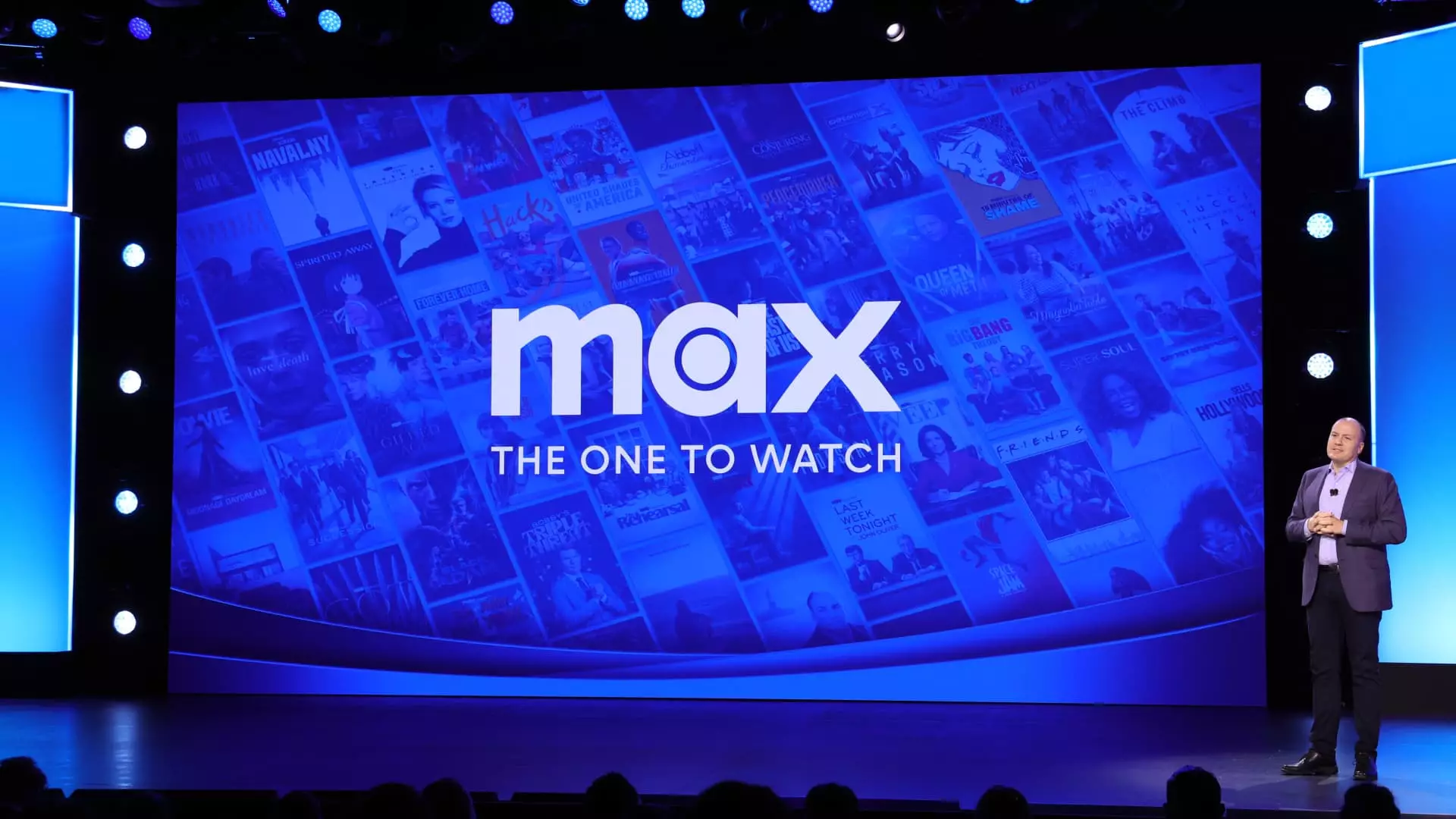Warner Bros. Discovery, a major player in the media industry, reported second-quarter results that failed to meet Wall Street expectations. This disappointing performance was seen across the board and included a decrease in subscriber totals.
At the end of the period, global direct-to-consumer streaming subscribers stood at 95.8 million, falling below the expected 96.7 million subscribers. This decrease of nearly 2 million subscribers from the previous quarter is concerning for the company. Analysts attribute this decline to customers dropping their Discovery+ subscriptions for the newly launched Max streaming service.
Data provider Antenna estimated that Discovery+ cancellations were up by approximately 68% compared to June 2022 due to the switchover to Max. It seems that the merging of HBO content with unscripted hits from the Discovery networks into one platform did not result in the expected retention of subscribers.
Despite the disappointing subscriber numbers, Warner Bros. Discovery managed to repay $1.6 billion in debt during the second quarter. Furthermore, the company announced a tender offer aimed at paying down up to $2.7 billion more. This focus on reducing debt is crucial for the company as it aims to regain investment-grade status by the end of the year.
The heavy debt load is a result of the 2022 merger between Warner Bros. and Discovery. To turn the tide, Warner Bros. Discovery needs to accelerate its debt reduction efforts. At the end of the second quarter, the company had a total debt of $47.8 billion and $3.1 billion in cash on hand.
CEO David Zaslav emphasized the team’s hard work in restructuring the business for the future. He highlighted the goal of becoming a “real storytelling company” and using free cash flow to support their diverse businesses. The ongoing focus on de-levering is a crucial element of this transformation.
Warner Bros. Discovery’s second-quarter financial results fell short of analysts’ estimates. The net loss per share was 51 cents, compared to the expected 38 cents per share. Revenue for the quarter was $10.36 billion, slightly lower than the expected $10.44 billion.
The company’s merger and the impact of foreign currency affected the revenue figures. On an actual basis, revenue was 5% higher year over year, but when considering these factors, it was down by 4%. Despite this, there was a notable improvement in the net loss compared to the previous year.
Warner Bros. Discovery, like its peers, has been striving to make its streaming business profitable. The company’s direct-to-consumer streaming segment turned a profit for the first time in the first quarter of this year. However, in the second quarter, it posted a loss of $3 million due to costs associated with the Max launch.
The combination of Warner Bros. and Discovery into a single streaming platform was a strategic move. The pricing for subscribers has remained the same, offering a tier with commercials priced at $9.99 a month and an ad-free tier at $15.99 a month. The company’s challenge lies in making this streaming business sustainable and profitable in the long run.
Warner Bros. Discovery’s studios segment experienced a decline in revenue compared to the previous year. Total revenue for this segment fell by 8% to $2.58 billion. When factoring in the impact of the merger, the segment’s decline was even more significant, reaching 23%. Underperforming films during the second quarter were cited as a major factor contributing to this decline.
The networks segment of the company remained relatively flat at $5.76 billion. However, advertising revenue for this segment decreased due to the declining number of traditional cable TV subscribers and the soft ad market. On a pro forma combined basis, the networks segment was down 6%.
Warner Bros. Discovery, along with its media peers, has been grappling with a prolonged ad market slowdown. The uncertain macroeconomic environment and accelerated cord-cutting have contributed to this challenging situation. Despite some improvements, the ad market recovery expected in the second half of the year has not materialized.
CEO David Zaslav expressed his disappointment with the ad market slowdown, which he considers unusual. However, the company’s annual pitch to advertisers, known as upfront discussions, is nearly complete. The positive news is that ad volume is up, and pricing levels remain consistent with last year. In 2021, Warner Bros. Discovery secured nearly $6 billion in advertiser commitments.
Focus on Debt Reduction
Warner Bros. Discovery remains committed to lowering its debt-to-EBITDA leverage to below four times. The company plans to utilize any meaningful cash generation for debt repayment. Cost-cutting initiatives, including layoffs and content-spending reductions, have contributed to improved adjusted EBITDA, which was up by almost 30% to $2.15 billion during the quarter. Cash generation has also been positive.
While there are challenges ahead, Warner Bros. Discovery is determined to navigate the changing media landscape and transform into a successful and sustainable storytelling company. The focus on debt reduction, improving subscriber numbers, and adapting to the evolving streaming industry will be key areas of emphasis moving forward.
Overall, the second-quarter results for Warner Bros. Discovery were below expectations, but the company remains optimistic about its future prospects. Through strategic initiatives and a commitment to change, Warner Bros. Discovery aims to rebound and regain its position as a leader in the media industry.


Leave a Reply